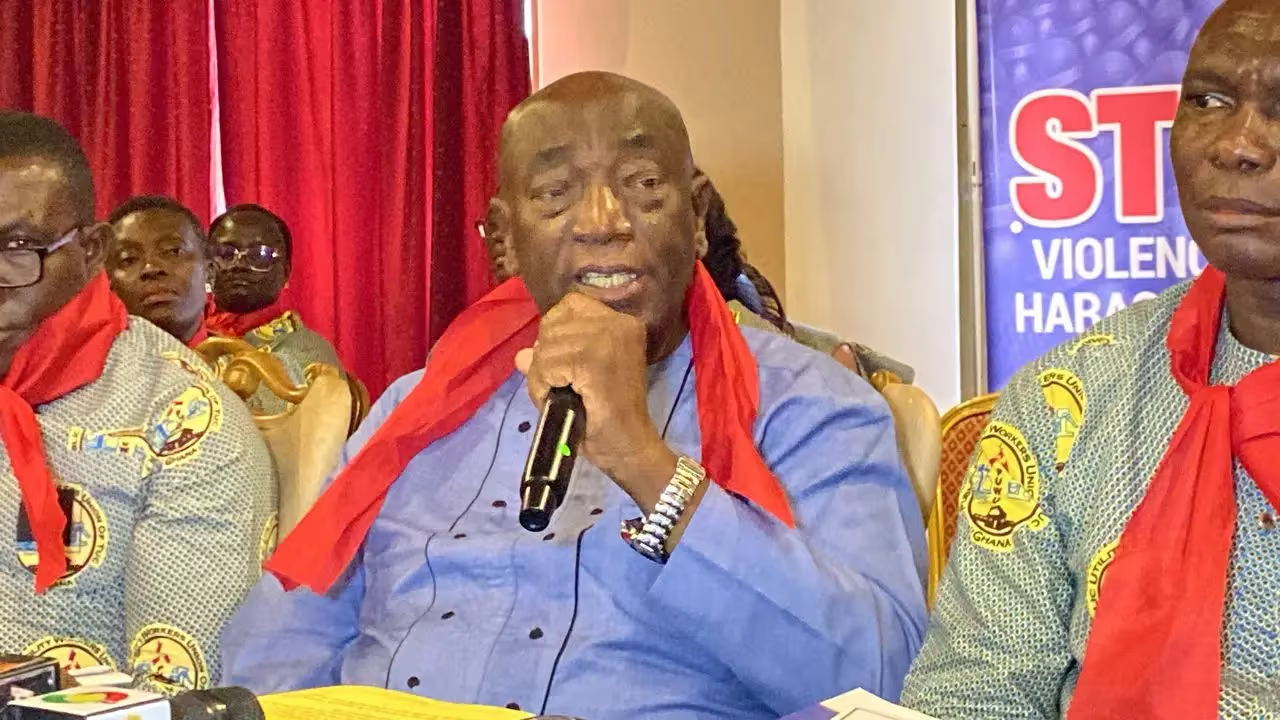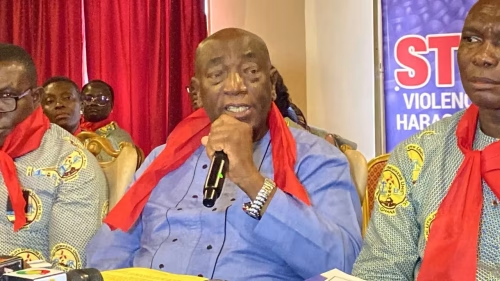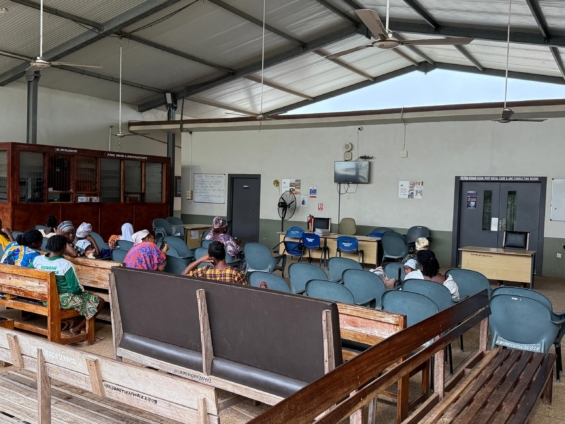Scrapping of fuel allowance could affect productivity of gov’t appointees – TUC


The Secretary General of the Trades Union Congress (TUC), Joshua Ansah, has cautioned that President John Mahama’s decision to scrap fuel allowance for his appointees could have adverse consequences.
Speaking in an interview with 3news on July 15 he stated that this decision could affect productivity of the appointees.
“Even though it is good to cut down on the fuel allowance, I am imagining what will happen to the government appointees. How are they going to work effectively? May be this decision is good, but it is going to affect their work, if not there should be some measures in place that can assist the appointees in doing their job,” he suggested.
President John Dramani Mahama on July 15 announced a total cancellation of fuel allowance for political appointees, a move he says is aimed at redirecting funds into key sectors of the economy.
While Organised Labour has welcomed the initiative, they want more than just an announcement.
Questions remain about how and where the savings will be used. Organised Labour says government must clearly communicate which sectors will benefit.
“If really, they make the savings and use it wisely then I can say that it is a positive sign, but where the savings will not be used wisely then it is better the President did not even cut the allowances at all,” Mr Ansah noted.
He further cautioned that the policy should not be extended to public and civil servants.
“We don’t want to see this as a strategy, because labour has sacrificed more already. I don’t think government will use this as any intent to trample down the gains labour would want to make. We think that this is the time we have sacrificed and this is the time we must be compensated together we can build this country, ” Joshua Ansah said.
For his part, the President of the National Association of Graduate Teachers, (NAGRAT), Angel Carbonu called on President John Dramani Mahama to back his decision to scrap fuel allowance for appointees with a legislation.
He said making it a law will ensure future governments comply and that public resources are used wisely.
“The fuel cancellation is a move in the right direction because these are people who are high salary earners. There are several allowances in the public space that we need to look at, one of them is the fuel allowance because the organisation you are working for should fuel the vehicles of the appointees,” he pointed out in an interview with 3news on July 15.
According to him, “some of these allowances are enjoyed by only a small percentage of the public service. The mass majority of workers don’t enjoy these allowances. They are the people who struggle every morning to pick trotro from Adenta to the ministries, they are the people who have to bear the brunt of any transportation increases or depreciation value of our cedi, so I support the call for the cancellation of the allowances.”
He added that, “I will want the President to go further to make this as a legislation and send that legislation to parliament so that it will become a law that political appointees, top notch public servants will not be given fuel allowance anymore. So it should be a law so that is not as if when President Mahama is no more, then we go back to the old order.”
The fuel allowance cut also comes as base pay negotiations approach. Labour leaders are urging the President to ensure the decision doesn’t impact those talks.
The General Secretary of the Ghana National Association of Teachers (GNAT), Thomas Tanko Musah appealed to the President to explain under which conditions of service the government appointees were recruited.
” Look if you employ a competent staff and the conditions under which that competent staff should work and those conditions are not there nothing will change. I don’t know the context in which the President is talking. Some time ago, we heard about the issue of first class, then today we hearing about cutting down on fuel, the President knows what he is communicating to his people, but I will rather suggest that we discuss these things holistically,” he said
With many welcoming the move as a step toward fiscal responsibility, the focus now shifts to how it’s implemented and whether Parliament will give it legal backing.




